What sanctions can unvaccinated employees face? In an article for Aspire Labour Law Update, our expert, Monika Politowska-Bar, an attorney-at-law in the Labour Law Team of CDZ Chajec and Partners, dispels doubts on this topic.
UPDATES ARCHIVE
What sanctions can unvaccinated employees face? In an article for Aspire Labour Law Update, our expert, Monika Politowska-Bar, an attorney-at-law in the Labour Law Team of CDZ Chajec and Partners, dispels doubts on this topic.
On 7 September 2019 a largely pro-employee set of amendments will come into force. One of the changes widens the circumstances when employees are allowed to initiate mobbing lawsuits. Employees will be able to initiate such lawsuits during the course of employment and not, as is the case now, only after the employee terminated his or her employment contract indicating mobbing practices as the cause for the termination.
On May 4, 2019, new regulations amending the Labour Code came into force. They are designed to align the currently binding employment law provisions with the Regulation of the European Parliament and of the Council (EU) 2016/679 (GDPR). The new regulations define categories of personal data that employers must obtain in connection with recruitment.

Employers whose employees travel on business often find it difficult to classify the time during which staff are outside their regular place of work. In accordance with Labour Code provisions, working time is defined as the time during which an employee is available for the employer at an establishment or any other location designated for work performance. Is the entire time spent on business travel treated as working tim
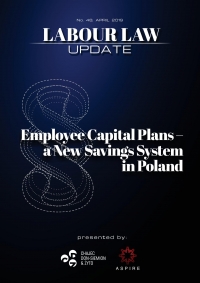
A PPK is a new long-term savings scheme that Polish employers must implement. Implementation of a PPK will be obligatory for all entities with at least one employee. The employer will have to enter into a PPK management agreement with a financial institution.
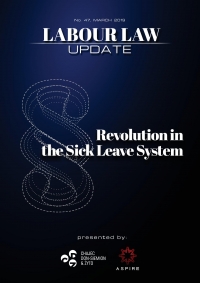
Starting December 1, 2018 doctors in Poland may issue medical certificates only in electronic format (on an e-ZLA form). Hardcopy certificates may be used in exceptional situations, such as no access to the internet or a home visit.
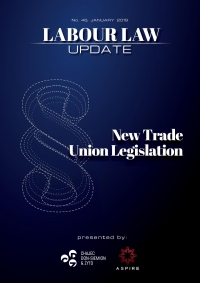
On January 1, 2019 amendments to the Trade Unions Act came into force. They are considered to be most far-reaching since 1991 when the Act was passed. The amendments may result in trade unions starting operations at companies where they have not been active to date.
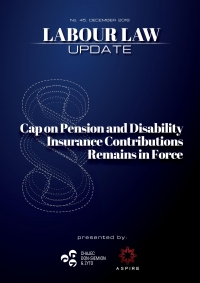
On November 14, 2018 the Constitutional Tribunal struck down a new law abolishing the limit on social security contributions. Consequently, the limit remains the same and the annual base for calculating pension and disability insurance contributions may not be higher than the amount corresponding to 30 times the forecasted average remuneration in Poland for a given year.
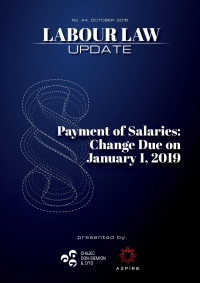
On January 1, 2019 rules for disbursement of remuneration to employees will change. The changes constitute part of legislation amendment related to employee records and their digitization. The rationale behind the amendment is the recognition that salaries of most employees are paid via money transfers and not in cash.
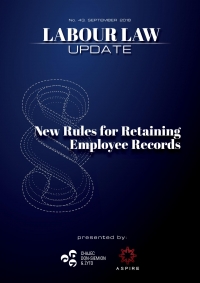
Considering the upcoming amendments and GDPR rules, it is advisable to review internal procedures related to employee records so that the changes taking effect on January 1 can be an opportunity to streamline processes.
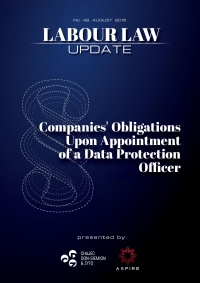
GDPR introduced a new institution: the Data Protection Officer (DPO), which replaced the current institution of the Information Protection Officer (IPO). In contrast to the voluntary appointment of an IPO, appointment of a DPO is mandatory when the provisions of the GDPR so stipulate.
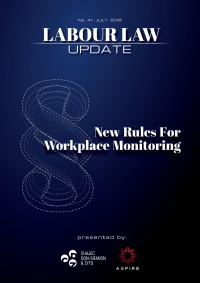
Following entry of the GDPR into force, the Polish Labor Code was amended in May by incorporating provisions giving employers clear guidance as to monitoring employees.

A bill on rules for obtaining information on clean criminal records of job candidates and employees of financial sector entities is making its way through the Polish Parliament. Once enacted, the law will legalize criminal background checks.
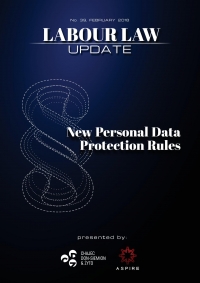
In April 2016, the European Parliament and the EU Council passed the General Data Protection Regulation. The GDPR was designed to make personal data protection rules uniform throughout the EU and bring those rules up to date with modern communication technologies.
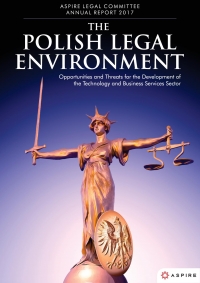
A report looking at the opportunities and Threats for the Development of the Technology and Business Services Sector. CDZ contributed on specific contractual labour law issues, flexibility of working time and employees data protection.

On January 1, 2018 an unfavorable change in law concerning the 50% creative works deductions rate will come into force. From that date on, the preferential rate will be limited to specific professions. The amendment will affect many groups of professionals such as architects, translators, graphic designers or IT specialists who so far have benefitted from deductions but will not be able to do this anymore.
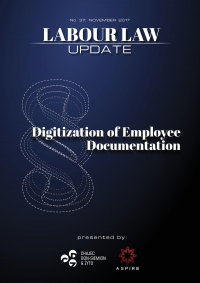
Keeping and storing employee documentation is a basic duty of each employer and compliance with it is onerous and costly. In line with legal regulations in force, companies must store documents in hard copy for 50 years from employment termination. This, however, may soon change.
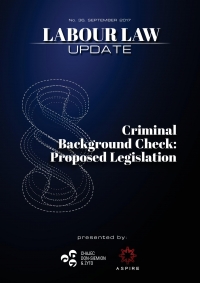
The Polish Ministry of Economic Development posted online a bill on rules for checking criminal records of candidates applying for employment at financial institutions. If enacted, the bill will legalize the vetting process applied by some employers. The bill makes it legal, from January 1, 2018, to ask job candidates to provide certificates of no criminal record concerning a specific group of offences.

Only one employment contract is generally permitted between an employer and an employee for a specific type of work. However, work may be also provided under civil law agreements. As a result, two concurrent legal relationships may be established with the same person: an employment contract and a civil law agreement. How to manage it to avoid an allegation of circumventing the law?
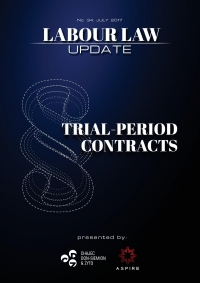
Trial-period employment contracts give employers an opportunity to verify qualifications and suitability of newly-hired employees for their jobs. Such contracts may be signed for a fixed term of up to three months.
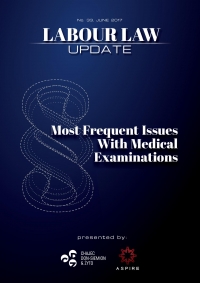
Workers tend to be unwilling to undergo medical tests, be it pre-employment, return-to-work or periodic examinations. Are there any effective legal instruments employers could use to discipline uncooperative employees?
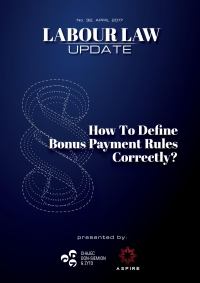
Employers planning to introduce additional remuneration components should establish detailed conditions governing their payment. Bonuses, unlike discretionary awards, are claimable. Employees acquire a bonus entitlement once they meet the conditions set out in the employer’s internal regulations.
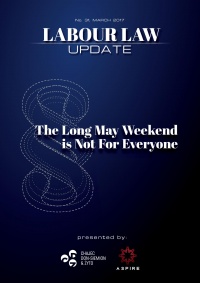
Although in principle it is against the law to instruct employees to do work on Sundays and statutory holidays, the Polish Labor Code provides for some exceptions. Multinational corporations with service centers or other operations in Poland that provide services for their overseas units, may take advantage of a special legal regulation which permits work on Sundays and statutory holidays.
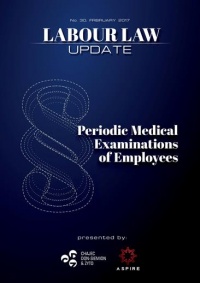
New employees undergo pre-employment health assessment to confirm their ability to work in the assigned position. Absence of contraindications to performing a specific work is confirmed periodically during medical examinations whose frequency depends on the nature of work. Employers must refer employees for medical examinations and they are required to report for such examinations.
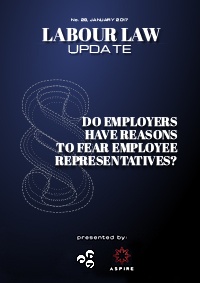
The power of employees depends on the kind of representative body present in the company. As long as employee representatives, works councils, EWCs or trade unions cooperate with employer they may be a constructive partner in carrying on the social dialogue. But representatives may become a problem when they attempt to abuse their powers.
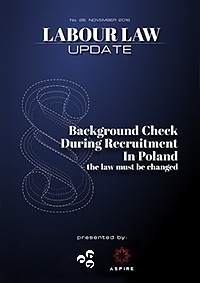
Under Polish law employers cannot verify the criminal records of job candidates unless they are recruiting for positions where the law requires a clean criminal record. This limitation results in a material threat to the interests of consumers using the services of banks and other financial institutions in which Polish employees do not undergo vetting procedures.

A non-compete contract that survives the termination of employment does not automatically transfer in the event of a transfer of the business establishment. This lack of transfer may have serious consequences.
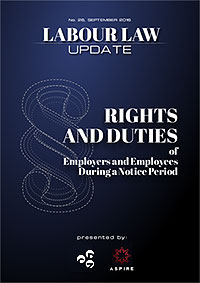
An employment contract, whether for a trial period, definite or indefinite term, may be terminated with notice both by an employee and an employer. Generally, during the notice period, the employee must work for the employer whereas the employer must pay remuneration for the entire notice period to the employee.
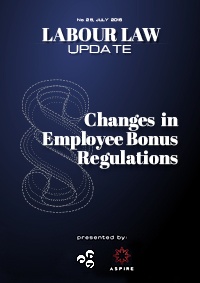
When introducing bonuses as an additional element of remuneration, the entitlement criteria must be specified in detail to mitigate the risk of disputes with employees.

In recent months, the Polish government and Members of Parliament have drafted a number of labor law amendments that will affect the Polish labor market. Some of the proposed bills are already being considered by the Sejm, while others are still at the stage of inter-ministerial consultations.
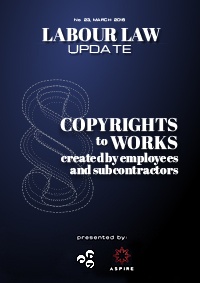
Employers own copyrights to works created by their employees, but this rule does not apply to works created under civil law contracts such as mandate or specific-work contracts.

Employers have the right to check how their employees use the company equipment entrusted to them. Employees, however, need to be notified about the monitoring rules in force in the company. Otherwise, employees may claim that their personal rights have been violated.

Social media are a popular source of information about candidates in recruitment processes. Industry reports show that it is more and more common for Polish employers to look up potential employees on Facebook, LinkedIn or GoldenLine. Are these practices in line with Polish law?
